Free Tools to Create a Website: A Comprehensive Guide
In today’s digital age, having a website is no longer a luxury but a necessity. Whether you’re an entrepreneur, a blogger, a small business owner, or just someone wanting to showcase your portfolio, a website is the best way to establish an online presence. Fortunately, creating a website doesn’t have to cost a fortune. There are numerous free tools available that make website creation accessible to everyone, regardless of technical skills. In this guide, we’ll explore the best free tools for creating a website, highlighting their features and benefits.
1. Website Builders
Website builders are user-friendly platforms that allow you to create websites without any coding knowledge. Here are some of the best free website builders available:
1.1 Wix

Wix is one of the most popular website builders, offering an intuitive drag-and-drop interface. Its free plan provides access to hundreds of templates, a subdomain, and up to 500 MB of storage.
Features:
- Drag-and-drop editor
- Mobile-optimized templates
- Free SSL certificate
- Access to Wix’s App Market
Limitations:
- Free plan includes Wix branding
- Limited storage and bandwidth
1.2 WordPress.com
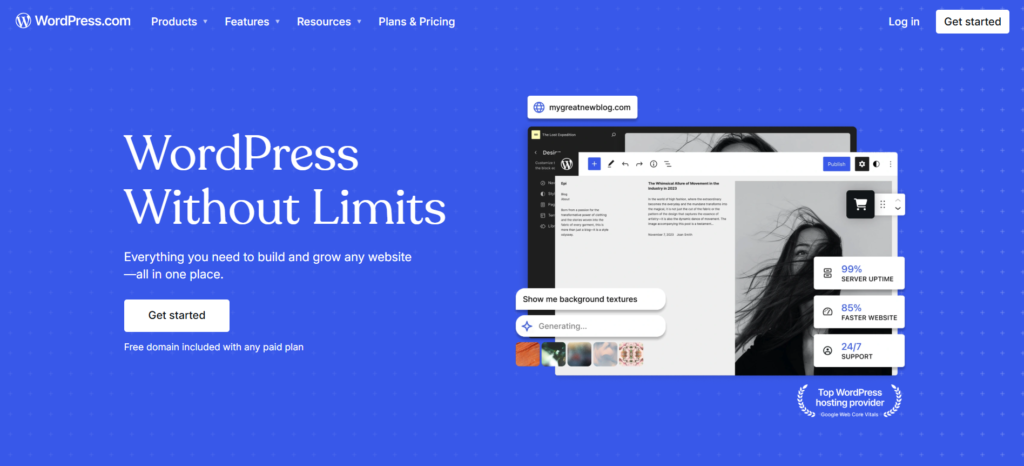
WordPress.com is a simplified version of the open-source WordPress.org. It’s perfect for beginners who want to create blogs or simple websites.
Features:
- Free themes and templates
- Built-in SEO tools
- Social media integration
Limitations:
- WordPress branding on free sites
- Limited customization options compared to WordPress.org
1.3 Weebly
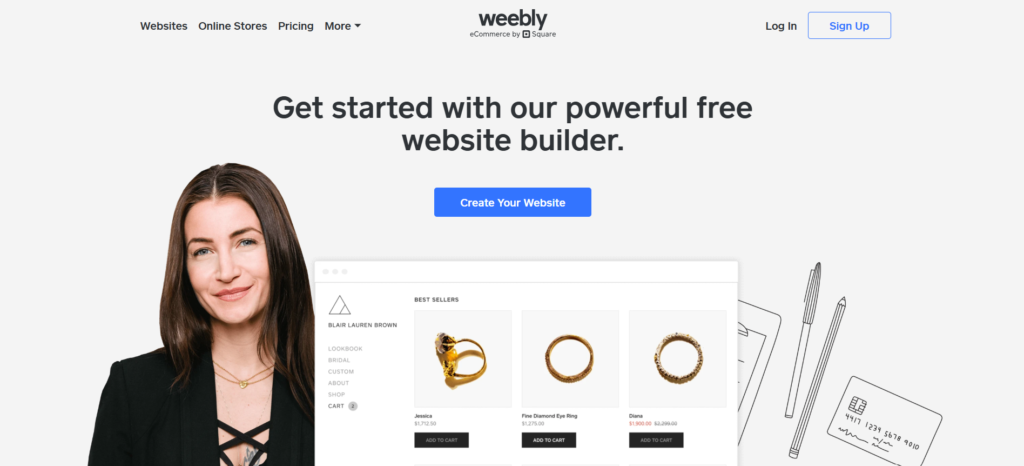
Weebly is another excellent website builder known for its ease of use. It’s ideal for small businesses and personal websites.
Features:
- Drag-and-drop functionality
- Free SSL certificate
- Mobile-responsive themes
- Built-in analytics
Limitations:
- Free plan includes Weebly branding
- Limited storage space
1.4 Site123

Site123 is perfect for users who prioritize simplicity. Its step-by-step approach makes website creation quick and straightforward.
Features:
- Free subdomain
- Responsive designs
- Multilingual support
Limitations:
- Less flexibility in design
- Includes Site123 branding
2. Content Management Systems (CMS)
If you have some technical knowledge or are willing to learn, content management systems offer more control and flexibility than website builders. While many CMS platforms are free, hosting and domain costs may apply.
2.1 WordPress.org

WordPress.org powers over 40% of the web and is the go-to choice for bloggers, businesses, and developers.
Features:
- Fully customizable with themes and plugins
- Open-source platform
- Strong community support
Limitations:
- Requires separate hosting and domain
- Steeper learning curve
2.2 Joomla
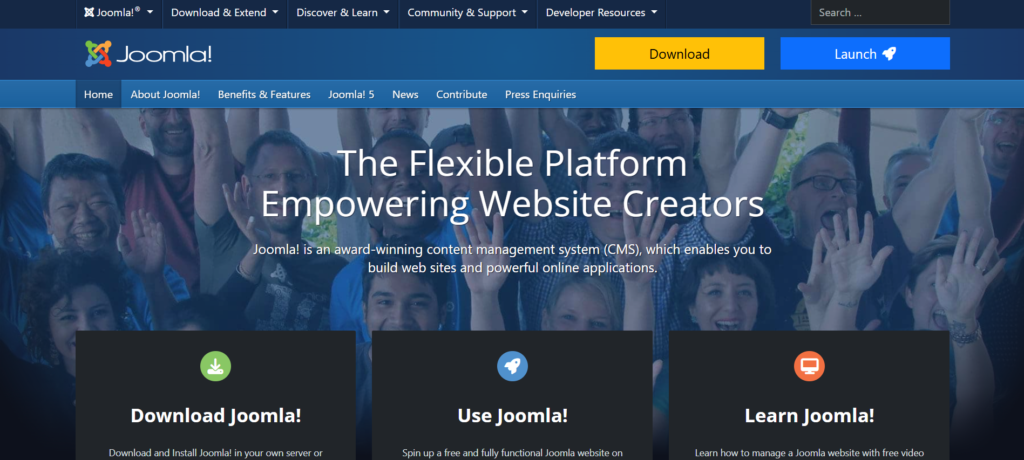
Joomla is another powerful CMS that’s free to use. It’s suitable for building complex websites.
Features:
- Advanced user management
- Multilingual support
- Extensive extensions and templates
Limitations:
- Requires more technical expertise
- Fewer themes compared to WordPress
2.3 Drupal
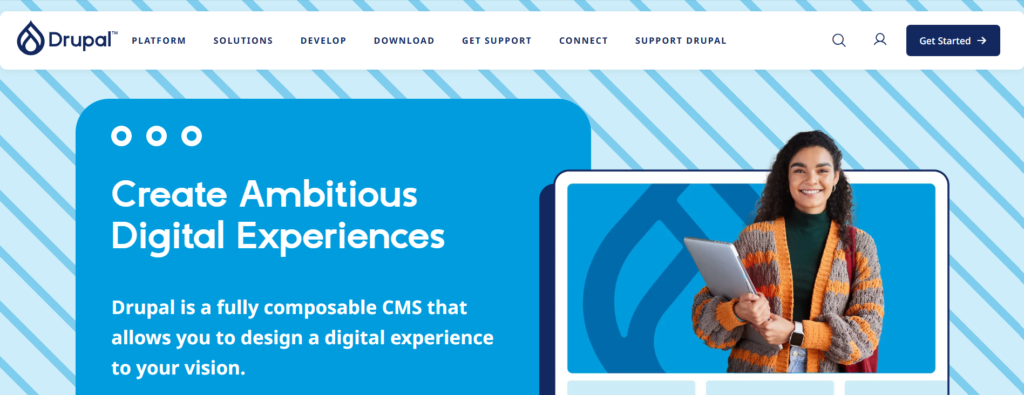
Drupal is a robust CMS designed for developers and those building enterprise-level websites.
Features:
- Highly customizable
- Excellent security
- Scalable for large websites
Limitations:
- Requires advanced technical skills
- Limited free themes
3. Free Domain and Hosting Services
Some platforms offer free hosting and domains, making it easier for you to launch your website without upfront costs.
3.1 InfinityFree
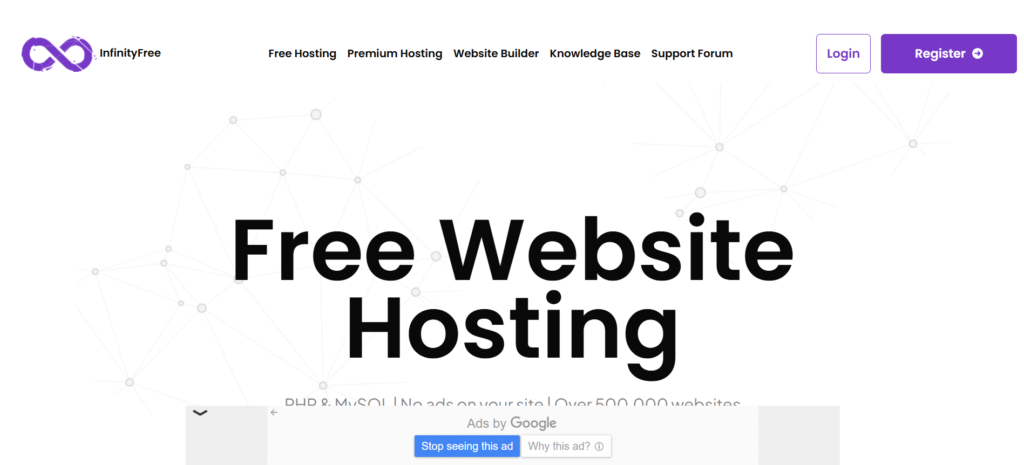
InfinityFree offers free web hosting with no hidden charges. It’s suitable for small websites.
Features:
- Unlimited bandwidth
- Free subdomain
- No ads
Limitations:
- Limited support options
- No custom email accounts
3.2 GitHub Pages
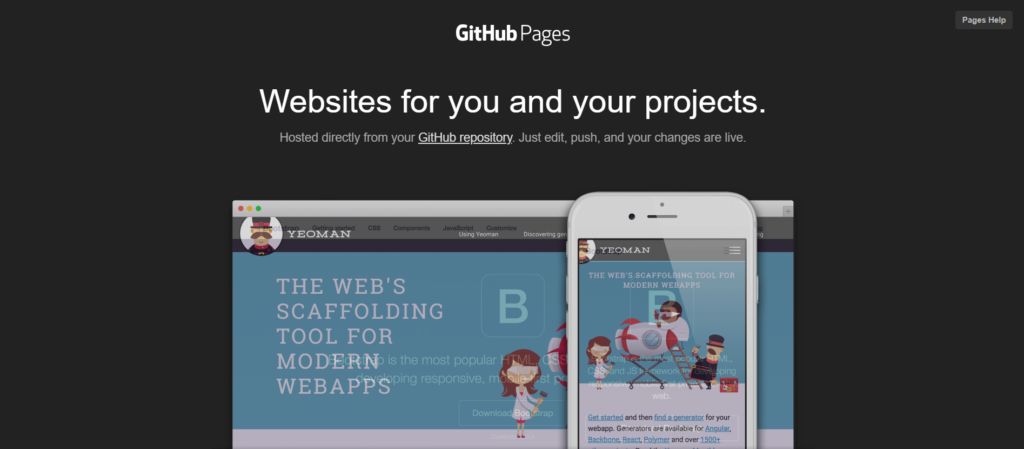
GitHub Pages is perfect for developers who want to host static websites for free.
Features:
- Free custom subdomain
- Supports HTML, CSS, and JavaScript
- Version control with Git
Limitations:
- Limited to static websites
- Requires basic coding knowledge
4. Design Tools
A visually appealing website is key to engaging visitors. These free design tools can help you create professional-looking graphics and layouts.
4.1 Canva

Canva is a user-friendly design tool that offers templates for creating website graphics, banners, and more.
Features:
- Drag-and-drop interface
- Free templates and elements
- Collaboration features
4.2 Figma
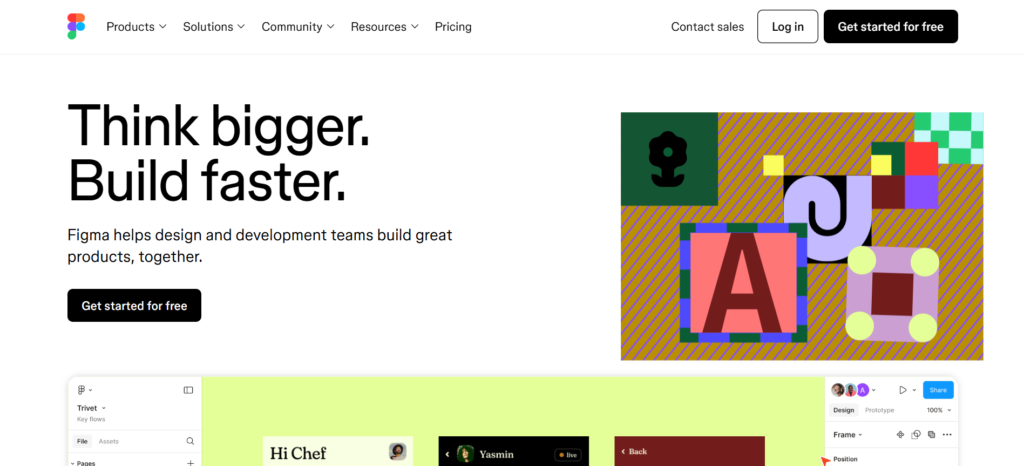
Figma is a powerful tool for designing user interfaces and prototypes.
Features:
- Cloud-based collaboration
- Free for individuals
- Supports plugins
4.3 GIMP
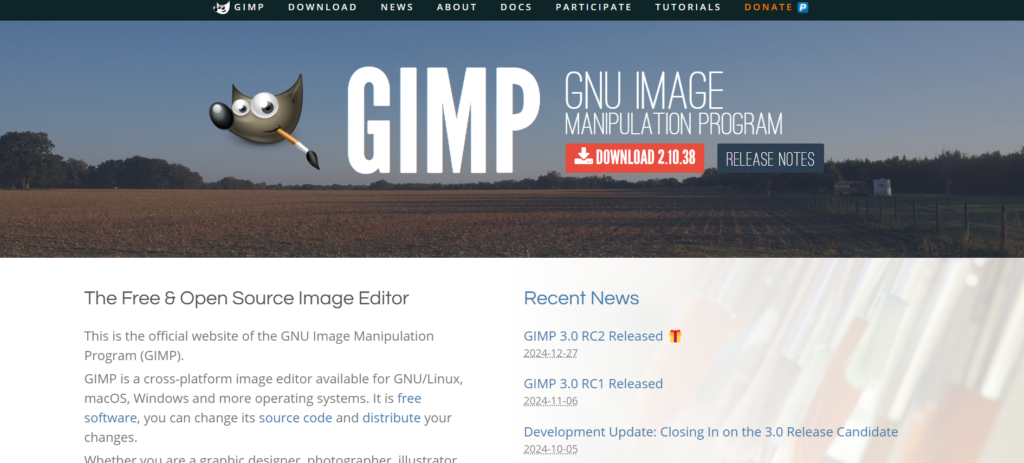
GIMP is a free alternative to Photoshop, perfect for advanced image editing.
Features:
- Open-source
- Wide range of editing tools
- Supports multiple file formats
5. SEO and Analytics Tools
To ensure your website reaches the right audience, SEO and analytics tools are essential.
5.1 Google Analytics
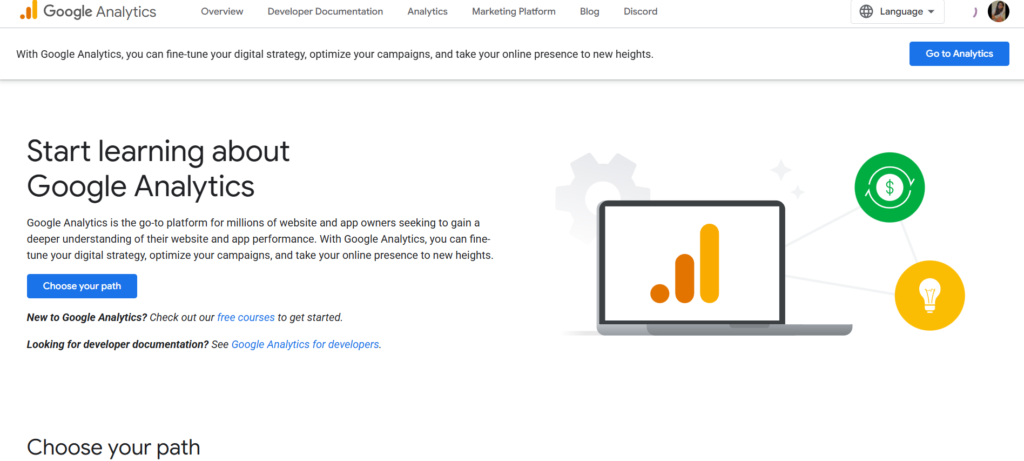
Google Analytics provides insights into your website’s performance, including visitor demographics, behavior, and traffic sources.
Features:
- Free and comprehensive
- Customizable dashboards
- Real-time data
5.2 Google Search Console
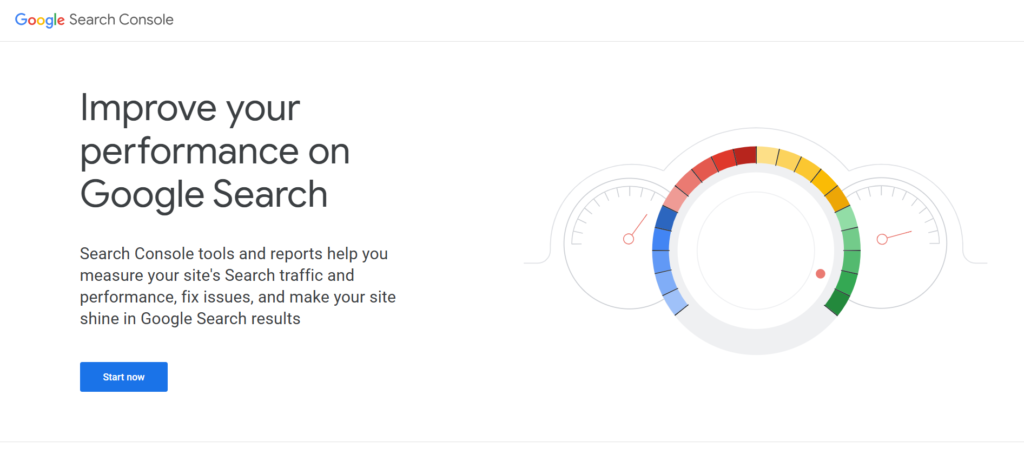
Google Search Console helps you monitor and improve your site’s visibility in search results.
Features:
- Tracks keyword performance
- Identifies indexing issues
- Provides SEO suggestions
6. Best Practices for Using Free Tools
While free tools are incredibly useful, they often come with limitations. Here are some tips to make the most of them:
- Choose the Right Platform: Pick a tool that aligns with your website’s purpose and your skill level.
- Optimize for SEO: Use SEO tools to ensure your website ranks well in search engine results.
- Focus on Design: Leverage design tools to create an attractive and user-friendly layout.
- Plan for Scalability: As your website grows, consider upgrading to premium plans for additional features and resources.
- Regular Maintenance: Keep your website updated to ensure it remains functional and secure.
Conclusion
Creating a website has never been easier or more affordable. With the plethora of free tools available, anyone can build a professional-looking site without spending a dime. Whether you’re a beginner using a website builder like Wix or an experienced developer leveraging GitHub Pages, there’s a solution for everyone. By combining these tools with a clear strategy and consistent effort, you can establish a strong online presence and achieve your goals. Start building your website today and unlock endless possibilities!
Read More : What is Quantum Computing? The Future of Technology
FAQs
1. Can I create a professional website for free?
Yes, tools like Wix, WordPress.com, and Weebly let you create professional websites, though free plans may include branding and fewer features.
2. Do I need coding skills to create a website?
No, website builders like Wix and Weebly offer drag-and-drop interfaces for easy website creation without coding.
3. Are free website tools secure?
Reputable tools provide basic security like SSL certificates, but always choose trusted platforms and follow best practices.
4. Can I upgrade to a paid plan later?
Yes, most free tools offer premium plans for advanced features like custom domains and more storage.
5. What are the drawbacks of free tools?
Free tools often have branding, limited customization, and restricted resources. Paid plans remove these limits.




